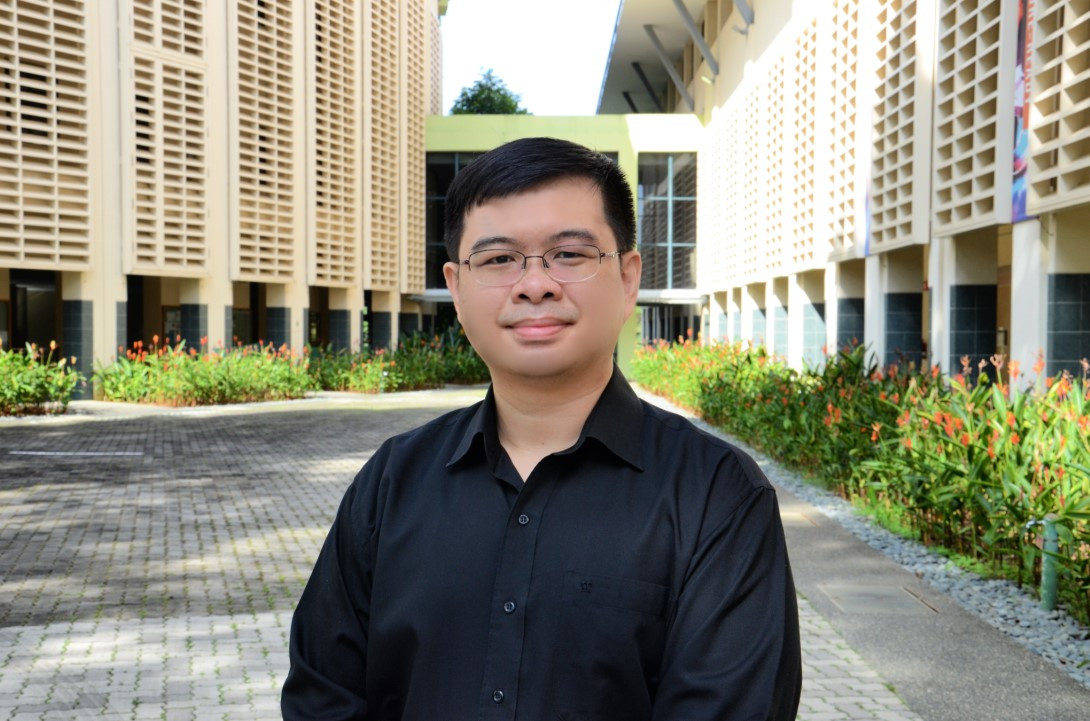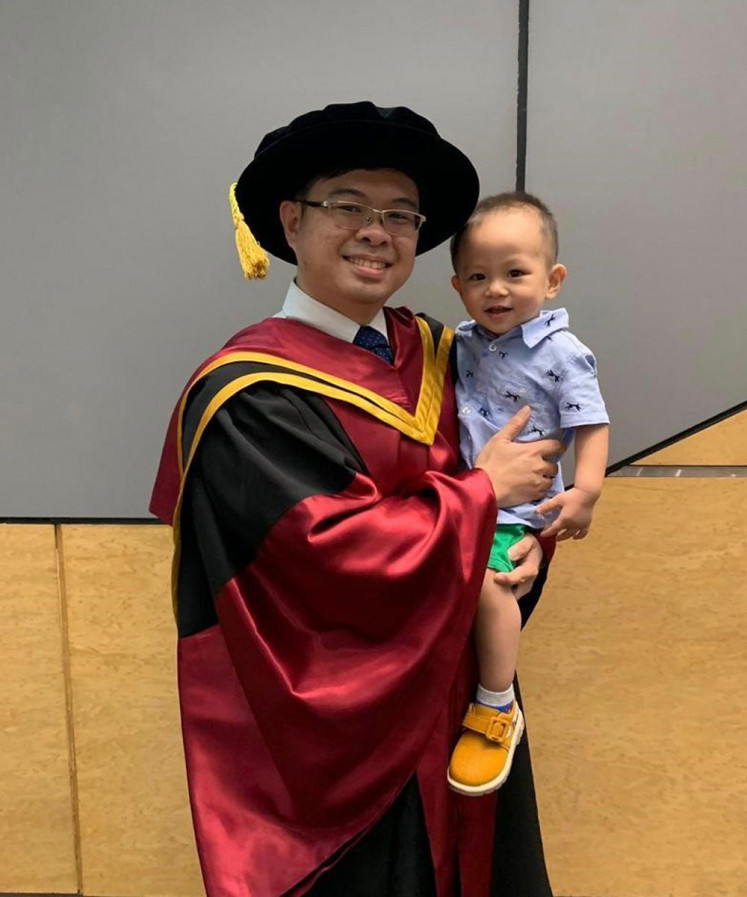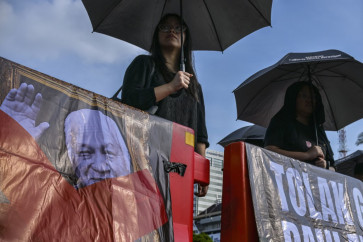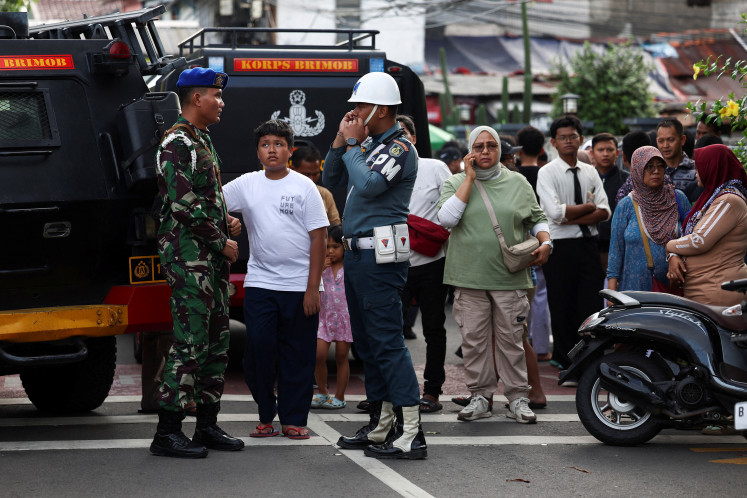Popular Reads
Top Results
Can't find what you're looking for?
View all search resultsPopular Reads
Top Results
Can't find what you're looking for?
View all search resultsMaking the transition from engineering to education research
As an electrical engineer by training, Dr Alwyn Lee spent five years with the Agency of Science, Technology, and Research, Singapore (A*STAR) doing research and development.
Change text size
Gift Premium Articles
to Anyone
A
s an electrical engineer by training, Dr Alwyn Lee spent five years with the Agency of Science, Technology, and Research, Singapore (A*STAR) doing research and development. While he accumulated vast experience collaborating with industries in the fields of information and communications, health care, smart devices and artificial intelligence, he was particularly drawn toward the field of education and was curious how students learn, and whether students were learning and accomplishing what they had set out to achieve. This curiosity propelled him to answer his burning questions by enrolling in the Doctor of Philosophy (PhD) program at the National Institute of Education, Nanyang Technological University, Singapore (NIE NTU, Singapore).
Prior to his search for universities that provided opportunities to conduct educational research in Singapore, NIE NTU Singapore was clearly his choice. “The amount of institutional knowledge, resources and the quality of educational researchers at NIE seemed to eclipse that of other institutes.” Influenced by his peers and close ones who were involved in the education sector as teachers, university lecturers or tutors, he saw how NIE was beneficial to them as an educator. “I realized that I could conduct research in an organized manner in the form of a PhD, with expert guidance in an established educational institute in Singapore,” shared Dr Lee.
When asked which aspect of the program and courses he liked the most, Dr Lee replied, “In my learning journey, the coursework at the beginning of my program was tremendously helpful in providing a basic understanding of learning sciences and methodologies that are important for research students.” The guidance and instruction on the foundations of learning sciences helped him develop a more in-depth understanding of the field and specialties of the learning sciences. This led him to appreciate how computer-supported collaborative learning platforms with knowledge building methodologies could be applied to classrooms. With this knowledge, he could further develop analytics for obtaining insights on learning behaviors.
On becoming a graduate student from an engineering role, Dr Lee admitted he initially did not know much about educational research. One of his most memorable experiences at NIE was making new friends in what he recalled endearingly as a “foreign environment”. His first few interactions with a group of coursemates, who happened to be teachers, were eye-opening and insightful. “They were very helpful in guiding one another to learn more about the learning sciences, and were especially invaluable to me, since I seemed to need the most help in understanding elementary information, such as the numerous acronyms that were commonly used in the educational fields.” He quipped candidly. With new friends made, he was assimilated into the NIE community, and his friends remained in contact with him even after graduation.
Dr Alwyn Lee at NTU Convocation. (Photo/Courtesy of NIE Singapore)Apart from his supervisor, co-supervisor and other faculty members from the Learning Sciences and Assessment Academic Group (LSA AG), Dr Lee counted himself fortunate to be acquainted with staff and faculty from other academic groups such as Natural Sciences and Science Education (NSSE) and Psychology and Child & Human Development (PCHD) at NIE. He also found that his participation in events such as the NIE Graduate Student Conference connected him with the Office of Graduate Studies and Professional Learning (GPL) staff who provided him with valuable advice on his PhD progress and future career options. Dr Lee is currently a research fellow at the Office of Education Research and also teaches at NIE. He added affirmatively, “Overall, I am glad to be able to contribute back to NIE’s warm and helpful community.”
NIE’s PhD program can be completed in up to a maximum of five years on both a full-time and part-time basis. Other than learning sciences and technologies, students can also pursue research work in diverse areas of study, covering arts and humanities, education, mathematics and physical education.
The National Institute of Education (NIE), Singapore is an autonomous institute under the Nanyang Technological University (NTU). It has been consistently ranked among the top 20 education institutions in the world and top three in Asia by Quacquarelli Symonds (QS) ranking. For more information on the range of graduate programs offered by NIE, please visit www.nie.edu.sg/ge.
Applications for NIE NTU’s August 2022 intake are now open. To apply, visit www.nie.edu.sg/aug2022.











